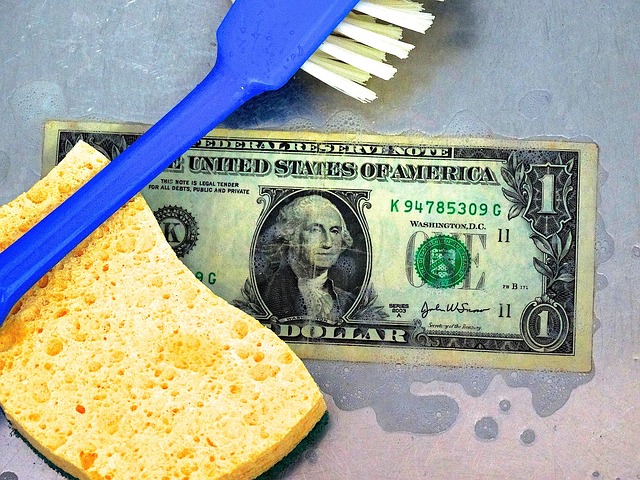
Money laundering can mean several different things, but it all amounts to the same process.
Welcome back and thanks for hanging in there with us through this series on fraud crimes in Michigan. So far we’ve looked at a wide range of different state and federal fraud crimes, from credit card fraud and tax evasion, to embezzlement and health care fraud. In this last installment in the series we’re going to wrap up our fraud discussions with a look at money laundering.
What is money laundering?
Money laundering is probably the most well known fraud crime, because it gets frequent mentions in movies. Court dramas and cop shows regularly feature the stereotyped mafia boss who is said to be involved in a long list of criminal activities, one of which always seems to be money laundering. But what does that mean?
It means this: when you launder money, you take money gained through criminal activities, and filtering it through a series of financial transactions that end up making that money appear to be legal. This is sometimes referred to as “washing” the cash (making it look clean again), hence the term laundering.
What counts as money laundering?
Money laundering can actually refer to several different methods for cleaning “dirty” money. For example, if someone makes money selling drugs or running prostitutes, they need to disguise their profits in order to not arouse suspicion from authorities. This could be done several ways including but not limited to:
- Structuring, which is sometimes called smurfing, is where cash is broken into smaller deposits of money, made over time. This could also be done by using smaller amounts of cash to purchase money orders, and then depositing those, again in small amounts. One reason for this is that bank report transactions to the government involving more than $10,000 each.
- Bulk cash smuggling, which involves physically smuggling cash to another country and depositing it in a bank there (commonly called offshore accounts), where the laws are less rigorous money or the privacy protection laws are more lax.
- Disguising earnings as income from cash-intensive businesses. In this case, illegally obtained money would be filtered through a legal business that expects to receive most of its income in cash. This could include laundromats, tanning salons, pizza shops, car washes and strip clubs. The business then claims all cash received as legitimate earnings.
- Trade-based laundering, which involves under or over-valuing invoices to disguise the movement of money.
What are the penalties for money laundering?
Money laundering in Michigan is vigorously prosecuted under both state and federal cirminal laws. The penalties differ in severity, based on the amount of money involved and the other criminal activity used to cover up the origins of the money. Under state of Michigan criminal laws:
First-degree money laundering is a felony with a maximum penalty of 20 years in prison, a fine up to $500,000.00, or twice the value of the proceeds, whichever is greater, or both.
Second-degree money laundering is a felony with a maximum penalty of 10 years in prison, a fine up to $100,000.00, or twice the value of the proceeds, whichever is greater, or both.
Third-degree money laundering is a felony with a maximum penalty of 5 years in prison, a fine up to $50,000.00, or twice the value of the proceeds, whichever is greater, or both.
Fourth-degree money laundering is a high court misdemeanor with a penalty of up to 2 years imprisonment, a fine up to $10,000.00, or twice the value of the proceeds, whichever is greater, or both. Don’t be fooled by the phrase “high court misdemeanor.” In Michigan, this is treated as a felony despite that misleading label.
In addition to the fines and prison time, there is also the issue of civil asset forfeiture to consider. Under Michigan law, any real or personal property purchased with laundered money is subject to seizure and forfeiture. Although Michigan’s civil asset forfeiture laws have been under review recently, and have changed for the better, we still have a long way to go.
What do I do if I’m accused of money laundering?
The answer to this question is the same answer we would give you if you were accused of any type of fraud crime in Michigan – call The Kronzek Firm at 866 766 5245 immediately! If your bank account has been frozen, or your assets have been seized, there is no time to wait! Contact us as soon as possible, and our aggressive criminal defense attorneys will begin work immediately on your behalf to recover your hard-earned property and protect your rights. Don’t delay! Call us or email us immediately, at any time of day or night. We are here for you!







